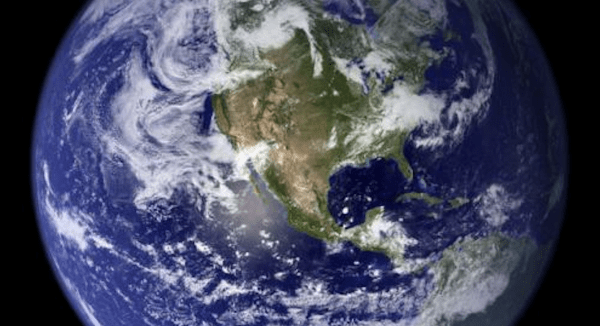Carbon Emissions Increase Slightly Worldwide, Decrease in US in 2019
UMD Researchers Add Expertise to International Report
Global carbon emissions are set to grow in 2019, but by a smaller margin than in years past, and emissions in the United States are projected to decrease, according to an international team of researchers contributing to the Global Carbon Budget—an annual report outlining the current picture of the global carbon cycle. The team, which includes two researchers with the UMD Department of Geographical Sciences, attributes the slower emissions rates to substantial declines in coal use, which were largely offset by a strong growth in natural gas use worldwide.
Emissions from burning fossil fuels are projected to grow by 0.6 percent (range: -0.2 to +1.5%) globally this year to reach almost 37 billion tons of carbon dioxide (CO2). This is down from 1.5 percent in 2017 and 2.1 percent in 2018. In the U.S., emissions decreased by 1.7% in 2019, due mainly to a 10% decline in coal use emissions. Coal is being displaced by gas in the U.S., and to a lesser extent by solar and wind power.
Coal use also fell off dramatically in the European Union, with China and India showing slower growth as well. Weaker economic growth also contributed to the global carbon emissions trend.
 UMD researchers George Hurtt and Louise Chini of the Department of Geographical Sciences provided new global land-use data used in the report. Among the key findings: Preliminary estimates of emissions from fire deforestation and other land-use change for 2019 reached 6 billion tons of CO2, about 0.8 billion tons above 2018 levels. This increase stems partly from elevated fire activity in the Amazon, in line with data from the Brazilian Space Agency showing that deforestation in the Brazilian part of the Amazon has steadily increased since 2008, reaching its highest level in 2019. Fire activity was also unusually high in deforestation zones of Indonesia. However, current deforestation rates are still well below those seen in the 1990s and early 200s.
UMD researchers George Hurtt and Louise Chini of the Department of Geographical Sciences provided new global land-use data used in the report. Among the key findings: Preliminary estimates of emissions from fire deforestation and other land-use change for 2019 reached 6 billion tons of CO2, about 0.8 billion tons above 2018 levels. This increase stems partly from elevated fire activity in the Amazon, in line with data from the Brazilian Space Agency showing that deforestation in the Brazilian part of the Amazon has steadily increased since 2008, reaching its highest level in 2019. Fire activity was also unusually high in deforestation zones of Indonesia. However, current deforestation rates are still well below those seen in the 1990s and early 200s.
"This finding highlights the key role that fire and land-use play in the global carbon cycle,” said Professor Hurtt.
Emissions overall this year are likely to be 4 per cent higher than in 2015, the year of the UN Paris Agreement. As international Governments gather at the UN Climate Change Conference (COP 25) in Madrid this week, the team behind the annual update of the Global Carbon Project call for policies directed at phasing out the use of fossil fuels, in addition to more urgent and largescale deployment of low-carbon energies.
Lead researcher Pierre Friedlingstein, of the University of Exeter, said: “A failure to promptly tackle the driving factors behind continued emissions growth will limit the world’s ability to shift to a pathway consistent with 1.5°C or well below 2°C of global warming, the aim of the Paris Climate Agreement. The science is clear, CO2 emissions need to decrease to net zero globally to stop further warming of the planet.”
The Global Carbon Budget is part of the Global Carbon Project, an international research project within the Future Earth research initiative on global sustainability, and a research partner of the World Climate Research Program. It aims to develop a complete picture of the global carbon cycle, including both its biophysical and human dimensions together with the interactions and feedbacks between them. The Global Carbon Budget 2019 is the 14th edition of the annual update that started in 2006.
Originally posted on the BSOS homepage.
Published on Wed, 12/04/2019 - 11:28


